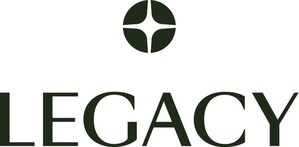WASHINGTON, April 15, 2011 /PRNewswire-USNewswire/ -- Legacy® today filed an amicus curiae (friend of the court) brief on behalf of itself and 17 leading public health organizations, supporting New York City's appeal of a ruling by a federal judge striking down the city's point-of-sale warnings on tobacco products. Legacy, the national public health foundation devoted to keeping young people from smoking and helping all smokers quit, previously filed a brief in support of the graphic warning ordinance in the trial court. The brief sets out the evidence showing that providing information on the health effects of smoking via graphic warnings is a proven-effective method to help smokers quit. In addition, providing information on how to access quit-smoking resources increases the number of calls to quit lines, which have broad reach and are an effective treatment for helping smokers quit.
(Logo: http://photos.prnewswire.com/prnh/20101101/DC86294LOGO)
In June of last year, three major tobacco companies – Philip Morris, R.J. Reynolds and Lorillard – filed suit to block the New York City Board of Health's requirement that retail outlets post graphic anti-tobacco posters where tobacco products are sold. In that case, a federal trial judge ruled that New York City health officials were in violation of federal law by requiring retail outlets that sell cigarettes to post graphic warnings depicting the health consequences of smoking along with information to help smokers find cessation (quit smoking) services. The ruling held that New York City's requirement that retailers post such warnings is in violation of the Federal Cigarette Labeling and Advertising Act – an act that restricts the authority of states to regulate tobacco advertising and promotion. New York City officials maintain that the signage requirement is legal under a June 2009 law that granted the U.S. Food and Drug Administration authority over tobacco products and clarified the rights of states and localities to regulate the terms and conditions of tobacco sales.
The brief focuses on the evidence demonstrating the efficacy and public health importance of the graphic warnings, and how the specific warnings required by New York City are grounded in scientific evidence. Research evaluating the adoption of similar graphic tobacco warnings on cigarette packs in Canada, Australia and other countries found that prominent graphic health warnings are "significantly more likely to cause consumers to notice and read the warnings, to focus on and develop stronger beliefs about the serious health risks of smoking, and to take steps to quit," according to the brief. Educational efforts remain critical, as tobacco-related disease remains the nation's number one cause of preventable death, killing more than 400,000 Americans each year. The brief also reiterated the importance of addressing this issue specifically in New York City, where more than 950,000 adults and 20,000 public high school students smoke, inflicting devastating health and economic consequences for the city.
"The ruling in December had the effect of putting tobacco sales ahead of the public health," said Cheryl G. Healton, Dr. PH, President and CEO of Legacy. "The U.S. Court of Appeals for the Second Circuit can correct this setback. We applaud New York City health officials for appealing the decision and for their leadership in this important area."
Legacy is dedicated to building a world where young people reject tobacco and anyone can quit. Located in Washington, D.C., the national public health organization helps American live longer, healthier lives. Legacy develops programs that address the health effects of tobacco use, especially among vulnerable populations disproportionately affected by the toll of tobacco, through grants, technical assistance and training, partnerships, youth activism, and counter-marketing and grassroots marketing campaigns. The foundation's programs include truth®, a national youth smoking prevention campaign that has been cited as having contributed to significant declines in youth smoking; EX®, an innovative public health program designed to speak to smokers in their own language and change the way they approach quitting; and research initiatives exploring the causes, consequences and approaches to reducing tobacco use. The American Legacy Foundation was created as a result of the November 1998 Master Settlement Agreement (MSA) reached between attorneys general from 46 states, five U.S. territories and the tobacco industry. Visit http://www.legacyforhealth.org/.
SOURCE Legacy
WANT YOUR COMPANY'S NEWS FEATURED ON PRNEWSWIRE.COM?
Newsrooms &
Influencers
Digital Media
Outlets
Journalists
Opted In





Share this article